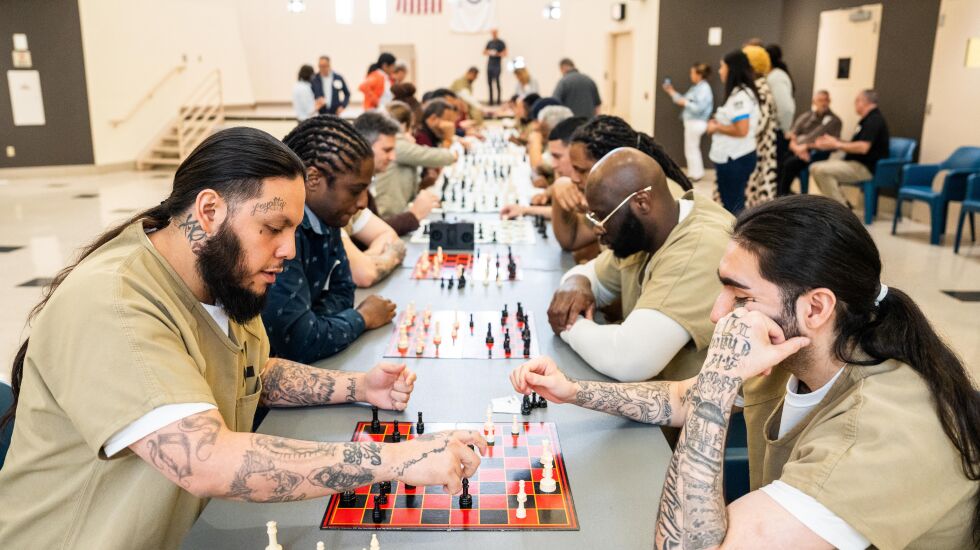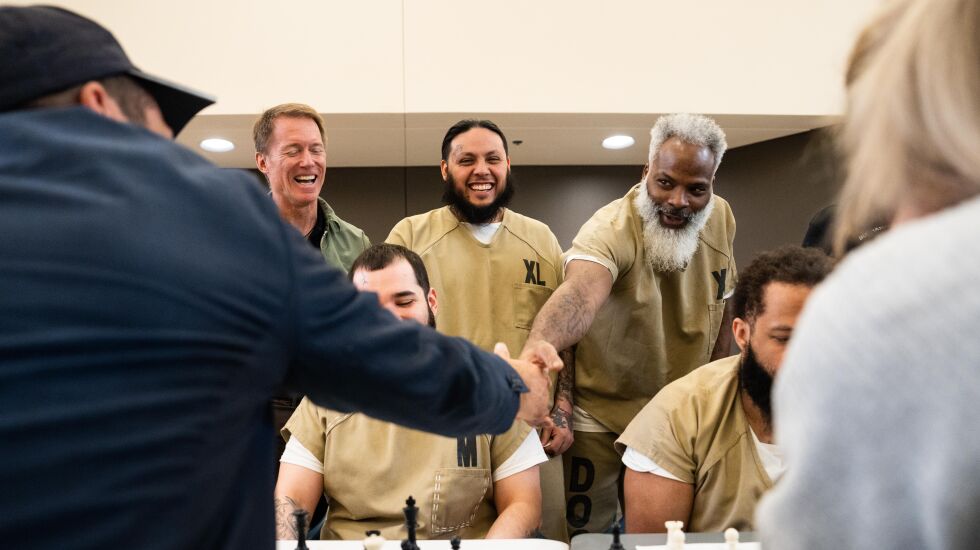
The room was unusually loud for a venue where more than a dozen international chess dignitaries were hunched over game boards, but then again, the room itself was an unusual setting for chess: the airy chapel of the Cook County Jail’s Division 11.
The relative noisiness did not seem to bother International Chess Federation President Arkady Dvorkovich, who smiled as he watched grand masters casually discussing moves with prisoners, and in at least one case, an inmate explaining the game to a novice from a Zambian delegate attending the federation’s “Chess for Freedom” conference.
“What they are doing [in Cook County] is outstanding. It is a great program to promote everywhere,” Dvorkovich said. “In jails, you have people who have made mistakes. Chess teaches you to avoid mistakes.”
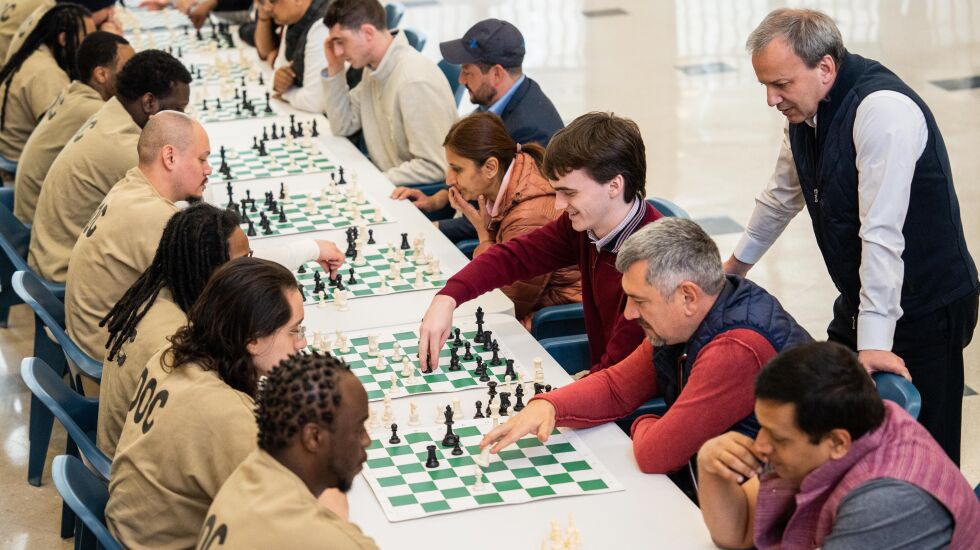
Cook County was an early promoter of the rehabilitative power of the game, and Sheriff Tom Dart hosted an international conference last week that included a tour of the jail on Thursday and some quick matches pitting attendees against inmates.
Cook County launched its chess program a little over a decade ago, when his son’s chess team coach approached Dart about teaching the game to inmates. In the years since, thousands of detainees have sought out the chance to learn the game through weekly classes and coaching.
Mikhail Korenman, a Russian immigrant and teacher who’s launched chess programs for alternative school students, has now seen thousands of jail prisoners pick up the game. The jail has hosted online international tournaments that draw incarcerated players from more than 40 countries.
“You play the game of chess, you must learn to think not just for yourself but for two people, to anticipate what they will do,” Korenman said. “When people learn that approach, it helps them in their everyday life.”
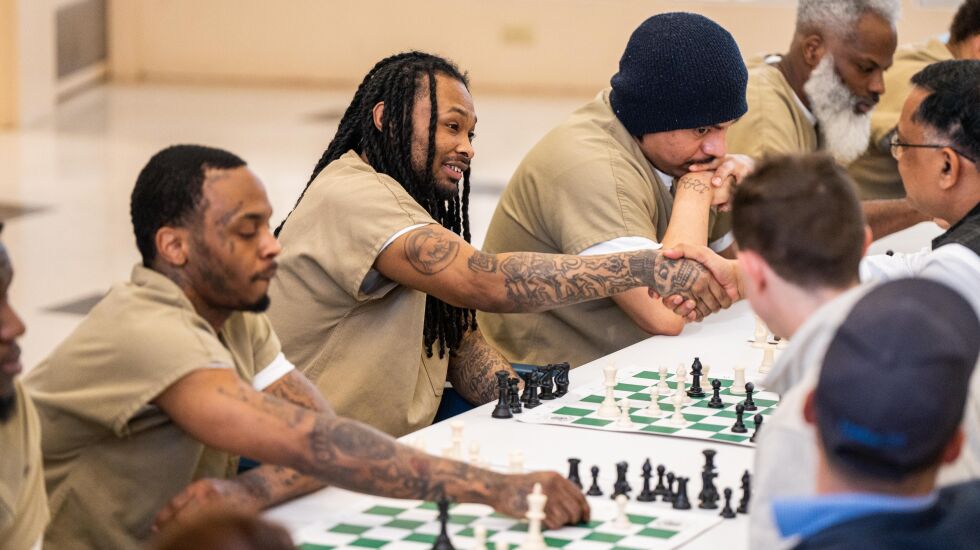
Joseph Jemena Mensah, general secretary of the Ghana Chess Association and a candidate grand master, said he hopes to see Ghanian prisoners form teams in the near future. He met with prison officials in Ghana earlier this year but was not sure how receptive they were.
“Chess is not too popular a game in Africa,” said Mensah, who picked up the game when a friend at his elite private school taught him the rules. “We are just looking to inform them that these programs can exist, that we don’t have to reinvent the wheel.”
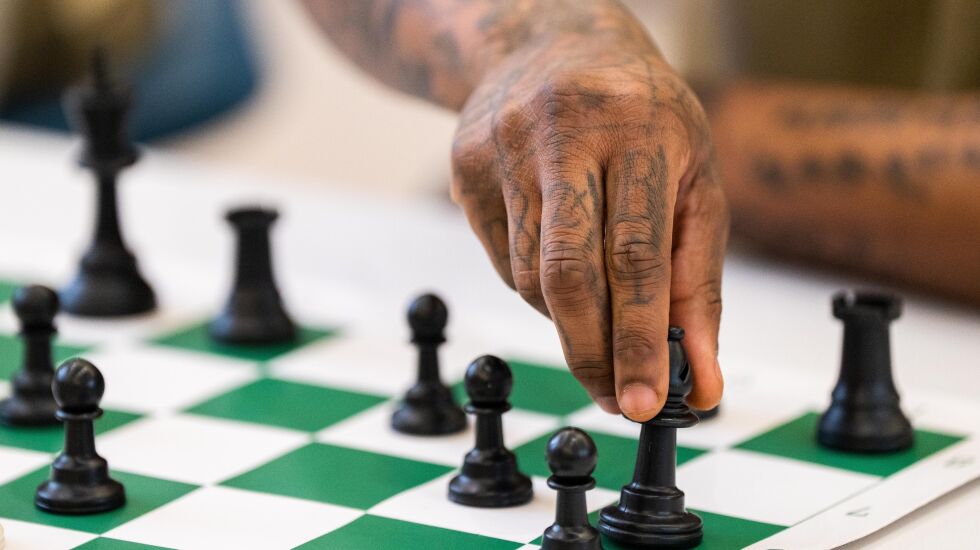
Sheriff Dart said Cook County’s example shows a chess program can flourish in any prison, noting the jail launched the program when the inmate population hovered around 11,000, about double the current headcount.
With bond policy reforms seeing more low-level defendants released ahead of trial, Dart said the jail’s chess players — mirroring the makeup of the inmate population as a whole — are more likely to be facing charges in violent crimes, but the program remains popular and has largely avoided violent incidents.
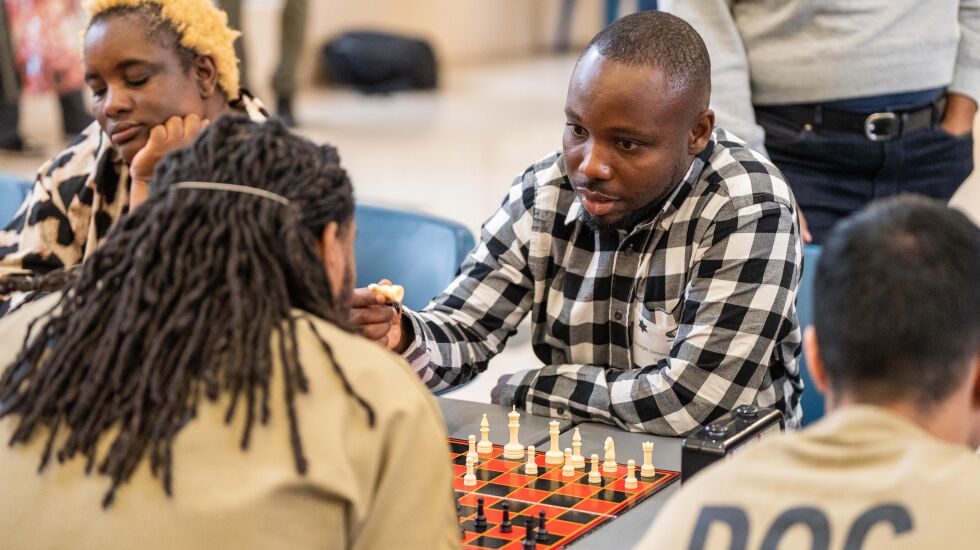
“This is something that started here, and it’s growing,” Dart said, noting that most of the questions from would-be chess organizers and other jail officials are about the logistics of running the program. “A lot of them are hearing that it can’t be done, but if we can do it here in Cook County, you can do it anywhere.”
Kenyatta Hampton, 42, who has spent 18 months awaiting trial on gun and domestic violence charges, said chess has taught him patience — a skill he hopes to impart, along with the rules of the game — to his sons whenever he is released.
“When I first started playing, I wasn’t thinking of my next move, I was only going for a fast win, Hampton said. “Now, I’m knowing the value of the pieces, when to make sacrifices to win in the long run. I’m starting to beat people.”
